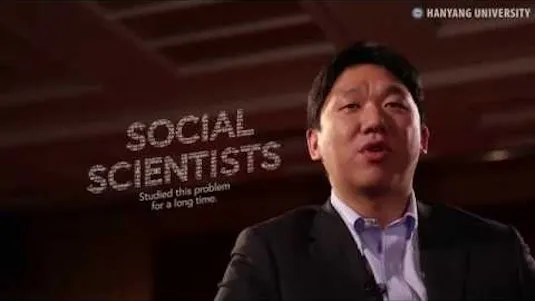
Casing the Joint: Introducing Histories of Australian Crime 
This course will explore the history of Australian crime, from its origins to its present day. You will learn about the legal system, the underworlds, and the processes of becoming entangled with the law. You will also gain an understanding of the resources available to research crime and punishment, and how to use them. By the end of the course, you will have a deeper understanding of the history of crime in Australia. ▼
ADVERTISEMENT
Course Feature
![]() Cost:
Cost:
Free
![]() Provider:
Provider:
Edx
![]() Certificate:
Certificate:
No Information
![]() Language:
Language:
English
![]() Start Date:
Start Date:
Self paced
Course Overview
❗The content presented here is sourced directly from Edx platform. For comprehensive course details, including enrollment information, simply click on the 'Go to class' link on our website.
Updated in [May 25th, 2023]
This course, Casing the Joint: Introducing Histories of Australian Crime, provides an overview of the history of crime and punishment in Australia. Students will explore the origins of Australian underworlds and the study of the history of crime and punishment. Through a variety of digital history resources, students will gain an understanding of the processes which occur when someone becomes entangled with the legal system. Additionally, students will learn where to go to find out more about an offender or a crime. By the end of the course, students will have a deeper understanding of the underworlds they encounter in podcasts, televisions series and books.
[Applications]
Those who have completed this course can apply their knowledge to further their understanding of Australian crime and punishment. They can use the digital history resources to explore the origins of Australian underworlds and the study of the history of crime and punishment. They can also use the resources to gain a deeper understanding of the processes which occur when someone becomes entangled with the legal system. Additionally, they can use the resources to research an offender or a crime for themselves.
[Career Paths]
1. Criminal Justice Professional: Criminal justice professionals work in a variety of roles, including law enforcement, corrections, probation, and parole. They are responsible for enforcing laws, protecting citizens, and ensuring that justice is served. As the criminal justice system continues to evolve, criminal justice professionals must stay up to date on the latest trends and technologies to ensure that they are providing the best possible service.
2. Forensic Scientist: Forensic scientists use scientific methods to analyze evidence from crime scenes. They are responsible for collecting, analyzing, and interpreting evidence to help solve crimes. As technology advances, forensic scientists must stay up to date on the latest techniques and technologies to ensure that they are providing the most accurate results.
3. Legal Researcher: Legal researchers are responsible for researching and analyzing legal issues and providing legal advice. They must be knowledgeable about the law and be able to interpret and apply it to a variety of situations. As the legal system continues to evolve, legal researchers must stay up to date on the latest trends and technologies to ensure that they are providing the most accurate advice.
4. Criminologist: Criminologists study the causes and effects of crime and criminal behavior. They use a variety of methods to analyze data and develop theories about crime and criminal behavior. As the criminal justice system continues to evolve, criminologists must stay up to date on the latest trends and technologies to ensure that they are providing the most accurate information.
[Education Paths]
1. Bachelor of Criminology: Criminology is the study of crime and its causes, consequences, and control. It is an interdisciplinary field that combines sociology, psychology, law, and other social sciences to understand the causes of crime and develop strategies for its prevention. Criminology degrees provide students with an understanding of the criminal justice system, the legal system, and the social and psychological factors that contribute to criminal behavior. This degree is ideal for those interested in pursuing a career in law enforcement, corrections, or social work.
2. Bachelor of Law: A Bachelor of Law (LLB) is a professional degree that provides students with the knowledge and skills necessary to practice law. This degree covers a wide range of topics, including criminal law, civil law, constitutional law, international law, and legal theory. Students will learn how to interpret and apply the law, as well as how to effectively represent clients in court. This degree is ideal for those interested in pursuing a career in law, such as a lawyer, judge, or legal advisor.
3. Master of Forensic Science: Forensic science is the application of scientific principles and techniques to the investigation of criminal activity. A Master of Forensic Science degree provides students with the knowledge and skills necessary to work in the field of forensic science. This degree covers topics such as crime scene investigation, forensic pathology, forensic psychology, and forensic toxicology. This degree is ideal for those interested in pursuing a career in law enforcement, criminal investigation, or forensic science.
4. Master of Criminology: Criminology is the study of crime and its causes, consequences, and control. A Master of Criminology degree provides students with an in-depth understanding of the criminal justice system, the legal system, and the social and psychological factors that contribute to criminal behavior. This degree is ideal for those interested in pursuing a career in law enforcement, corrections, or social work.
Course Provider

Provider Edx's Stats at AZClass
Discussion and Reviews
0.0 (Based on 0 reviews)
Explore Similar Online Courses

Burp-Suite

Jenkins Online Training

Python for Informatics: Exploring Information

Social Network Analysis

Introduction to Systematic Review and Meta-Analysis

The Analytics Edge

DCO042 - Python For Informatics

Causal Diagrams: Draw Your Assumptions Before Your Conclusions

Whole genome sequencing of bacterial genomes - tools and applications

Criminology and Criminal Psychology Certified CSI+ Course

Criminology : Fundamentals of Criminal Psychology and Law

Economics of Crime
 Related Categories
Related Categories
Quiz
 Submitted Sucessfully
Submitted Sucessfully
1. What is the main purpose of this course?
2. What will you develop a sense of in this course?
3. What is the title of this course?


Start your review of Casing the Joint: Introducing Histories of Australian Crime